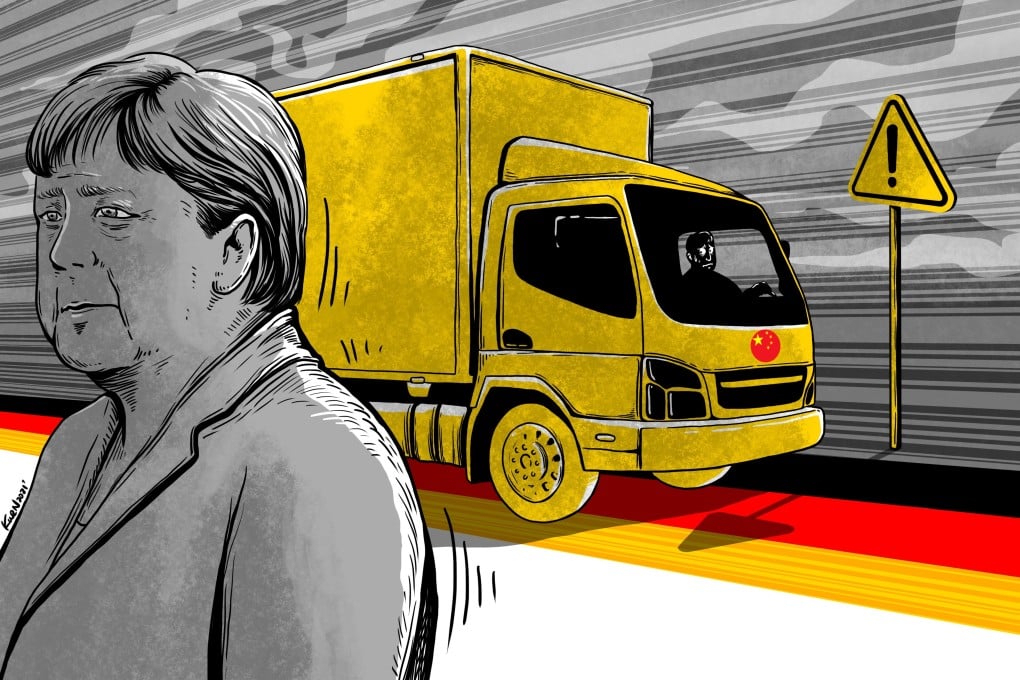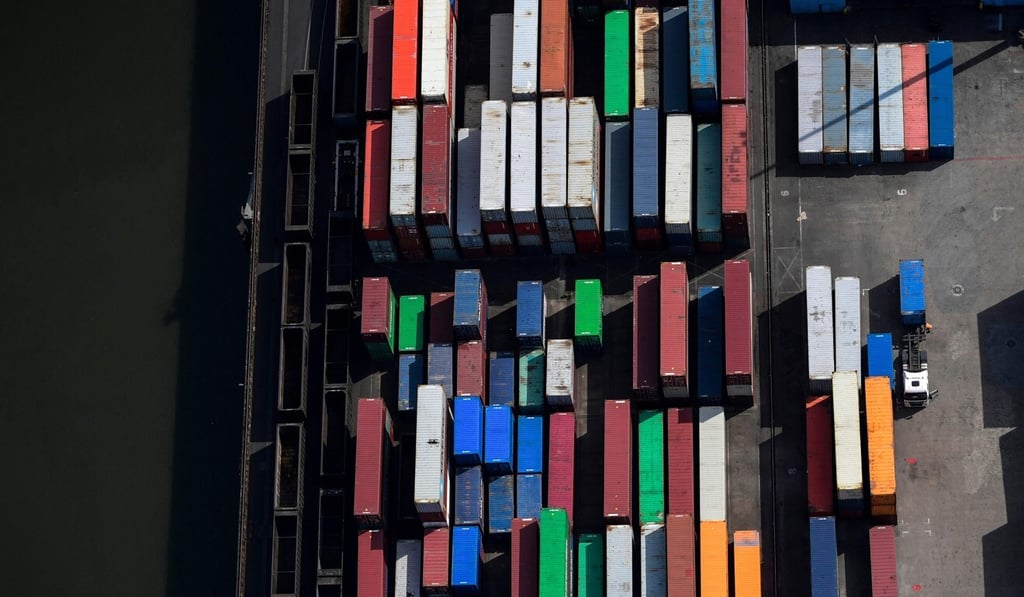As Angela Merkel’s exit approaches, Germany’s ‘China city’ nervously eyes the future
- Germany’s ‘China city’ Duisburg has long hoped that the surging export-import business would turn into larger investments and jobs
- But German election day is September 26, the end of the Angela Merkel era and what many predict will be a turning point for German-Chinese relations

A German truck pulls out of a logistics park on the banks of the Rhine, carrying an azure blue container emblazoned with the logo of the Xian port on its chassis.
It drives past the rusted railway tracks on which the box arrived from China, part of a growing convoy of up to 80 trains a week that arrive in Duisburg from China then fan out into continental Europe. One container down, thousands to go.
There are stacks of Chinese containers everywhere in this busy inland port, bearing the names Zhejiang International Hub, China Shipping or YuXinOu Logistics of Chongqing.
Business is booming as the number of trains arriving has more than doubled over the course of the pandemic. Each train carries 41 containers loaded with desks, yoga mats, or pet food, goods pumped out in Chinese factories, to be spirited via Autobahn or the rivers Ruhr and Rhine.

This is, local officials say, “Germany’s China city”. They have long hoped that the surging export-import business would turn into something greater than a thoroughfare for Chinese containers – larger investments bringing jobs to this rundown town at the heart of Germany’s rust belt.
“Ideas and innovation, they don’t come in containers,” said Rasmus Beck, CEO of local investment promotion authority Duisburg Business and Innovation (DBI), who wants to see the docklands investment seep into the rest of the city.
